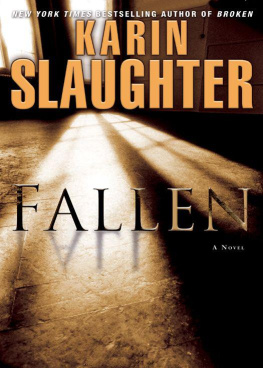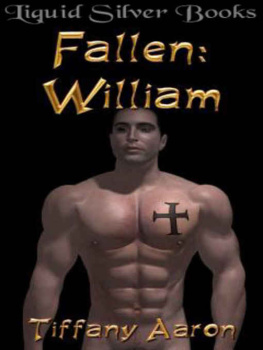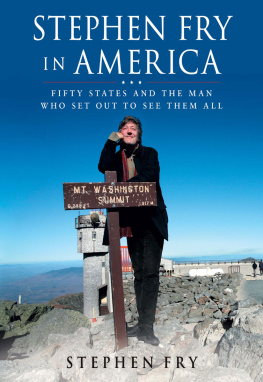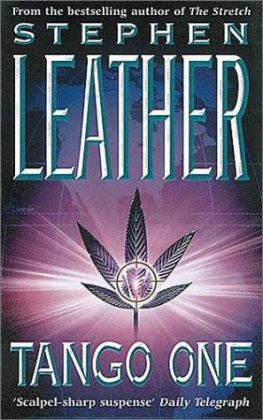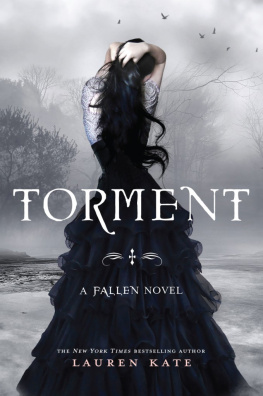Stephen Finucan - The Fallen
Here you can read online Stephen Finucan - The Fallen full text of the book (entire story) in english for free. Download pdf and epub, get meaning, cover and reviews about this ebook. year: 2009, publisher: Viking Canada, genre: Detective and thriller. Description of the work, (preface) as well as reviews are available. Best literature library LitArk.com created for fans of good reading and offers a wide selection of genres:
Romance novel
Science fiction
Adventure
Detective
Science
History
Home and family
Prose
Art
Politics
Computer
Non-fiction
Religion
Business
Children
Humor
Choose a favorite category and find really read worthwhile books. Enjoy immersion in the world of imagination, feel the emotions of the characters or learn something new for yourself, make an fascinating discovery.
- Book:The Fallen
- Author:
- Publisher:Viking Canada
- Genre:
- Year:2009
- Rating:5 / 5
- Favourites:Add to favourites
- Your mark:
- 100
- 1
- 2
- 3
- 4
- 5
The Fallen: summary, description and annotation
We offer to read an annotation, description, summary or preface (depends on what the author of the book "The Fallen" wrote himself). If you haven't found the necessary information about the book — write in the comments, we will try to find it.
The Fallen — read online for free the complete book (whole text) full work
Below is the text of the book, divided by pages. System saving the place of the last page read, allows you to conveniently read the book "The Fallen" online for free, without having to search again every time where you left off. Put a bookmark, and you can go to the page where you finished reading at any time.
Font size:
Interval:
Bookmark:
With the windows covered, the apartment sank further into darkness. Luisa and Maria had gathered linens from the cupboards and beds and put them into place with upholstery tacks theyd pried from the sofa and chair in the salotto, but nothing, it seemed, could keep out the ash. It spread like a fine, slippery dust across the floors and settled on every flat surface. It tainted the air and made it difficult to breathe.
Finally, they went into the kitchen. They wet strips of cloth and wedged them beneath the door and around the frame. They lit candles and got out bread and cheese, and then, even though it was still morning, they opened a bottle of wine that Maria had brought home from the American officers club.
Are you frightened?
No, Luisa said. Are you?
A little, yes.
When the eruption had started the previous afternoon, she had been frightened. She had gone down into the street. But her fear was soon replaced by a powerful sense of guilt. She thought of Augusto alone at the museum. For a time she considered going to him, but then she went back upstairs to the apartment.
Luisa, Maria said.
Yes.
I have something I want to tell you.
Luisa suspected what her cousin had to say, but she let her speak.
Ive met someone.
Is that right? said Luisa.
You know him. Captain Roth.
I know him?
Yes. From the interviewshe was the man with the clipboard. He runs the club.
I see, said Luisa.
No, its not like that. Hes not like that. He is good, like your Thomas.
To hear Maria say his name made him sound somehow unreal to Luisa. And suddenly she felt as if he were no more than a figment of her imagination, a brief fantasy. She thought now of his letter, tucked away in the trunk at the foot of her bed. That was where it would stay. Luisa knew that he wasnt coming back. Shed known when Aldo had come knocking on the door. Shed known when she had read his note. He wouldnt have written it had he thought otherwisethe letter for the major hed given her as insurance. It was a guarantee of her safety, but what hed never understood was that her safety was not something he could ensurenobody could. A piece of paper in the hands of a British officer, regardless of what was written on it, was just thata piece of paper. It wouldnt stop anyone from getting to her or to Augusto. The only reason shed kept it at all was that she knew, except for a cheap music box, it would be the only piece of him left to her.
How do you know, she said, that Thomas is so good?
By the way your face looks whenever you mention his name, said Maria.
Luisa smiled. We shouldnt always trust our faces.
She sipped her wine. Then she broke off a piece of bread and put it in her mouth: it tasted of ash.
Will you go to the museum today? Maria asked.
Perhaps later, said Luisa. I am going to go to the hospital first.
May I come with you?
To the hospital?
Yes. Do you think it would be all right?
Luisa reached out and took her cousins hand. Of course it would be all right, she said.
Cioffi had sat with Lellos body through the night, until the early morning hours when the ash began to blow in through the open window. He watched as it slowly covered everything: the floor, the chair, the tablehis friends distorted face.
He covered Lello with a blanket and then wrapped himself in whatever he could find: an old shirt covering his head, a dishcloth tied around his face, covering mouth and nose. He left the apartment house on Piazza Carolina and began to walk. He passed the Gambrinus and headed in the direction of Via Roma. The streets were next to empty. Every so often the headlamps of a passing car or truck would loom up in the sooty haze. He met no one on the pavement; it was as if the city had been forsaken.
He made his way towards the museum. He had to warn Augusto. He had to tell him everything. When he had done that, he would go north. If he could get to Rome, he could lose himself there.
The ash, like a foul grey snow, overflowed the pavement and gathered in small drifts in doorways and in the mouths of alleys. It filled the air: a choking, sulphuric fog. He had to stop often just to clear his throat. It was becoming difficult to breathe. He felt like he was slowly smothering.
In the square in front of the museum, he had to stop again. He removed the cloth from around his face and cleared the claylike crust of ash that had collected in the corners of his mouth. His eyes had begun to sting, as well.
As he was doing this, a car pulled up to the curb at the bottom of the museum steps. The engine idled roughly. Then the doors opened and Salvatore Varone and his man stepped out.
Cioffi watched them climb the steps to the unguarded front entrance, and he knew that there was nothing now that he could do for Augusto. He waited until they disappeared inside, then he turned and walked back towards Via Roma.
The old mans tears made Varone uncomfortable; they embarrassed him. Normally, peoples weeping did not affect him: it was commonplace in his business. Crying mothers, crying fatherscrying husbands and wives, crying children. There were those who cried out of fear and those who cried out of anguish. But there was something different about this old mans griefsomething more to it than a mothers, a fathers, a husbands, or a childs. It was as if he was mourning more than simply one man, more than simply one life.
And yet, his grief was silent. He sat behind his wide desk in an office lit with oil lanterns and wept without making a sound.
The room, suffused in a dim yellowish radiance, had the air of the candlelit nave of a small country church. And the thin layer of ash that lay over everythingthe bookshelves, the statuettes, the open ledgers spread across the top of the cabinetsseemed to have settled on the old man too. He was like a greying spectre of himself.
Varone looked over at Paolo now, who stood near the tall window that had been covered over with a patchwork of tapestries. Slivers of tainted sunlight leaked through gaps in the fabric. Paolo glanced back at him and shrugged.
Finally, Varone said: So, he was a friend of yours, then?
Yes, he was a friend.
Im sorry.
The old man looked over towards the shrouded window and nodded at Paolo. Is he the one who did it?
Yes, said Varone.
Then tell him to leave. I wont speak to you if he stays.
Varone told Paolo to wait for him in the corridor, then he watched as the curator dried his eyes with the backs of his hands. He took out a handkerchief and blew his nose. Then he got up from his chair and went to the small table with the field stove on it. The old man took out a packet of matches and lit the stove. He adjusted the flame, put a battered caffettiera on to boil. Soon the smell of brewing coffee filled the office.
Thomas was a good man, he said finally.
So I gathered, said Varone.
For a time, the old man was quiet. He waited for his coffee to boil and then poured a cup and came back to his desk and sat down. He watched Varone as he brought the cup to his lips. Then he said: What do we do now?
We do nothing, said Varone.
What do you mean?
Varone went to the table and found a cup. He took the caffettiera from the stove and poured a coffee for himself.
Its over, he said. I gave him my word.
And its good? Your word?
It may be the only thing about me that is.
Varone took a sip of the bitter coffee and let it settle on his tongue before he swallowed it down.
The old man got out of the chair again and came round the desk. Varone could see that hed once been a sturdy figure. He had broad shoulders and a thick chest. His hands still looked powerful, and Varone thought that there would have been a time when hed have been a worrisome prospect. But all of his force had left him. He started across the room towards the window but stopped partway. He appeared momentarily lost as if hed forgotten why it was that he had left his desk. Then he looked at Varone and, with a slightly bemused expression on his face, said, He told me once that every man, though he knows he is going to die, can never know that he is dead. And that is why, in his mind, every man is immortal.
Font size:
Interval:
Bookmark:
Similar books «The Fallen»
Look at similar books to The Fallen. We have selected literature similar in name and meaning in the hope of providing readers with more options to find new, interesting, not yet read works.
Discussion, reviews of the book The Fallen and just readers' own opinions. Leave your comments, write what you think about the work, its meaning or the main characters. Specify what exactly you liked and what you didn't like, and why you think so.


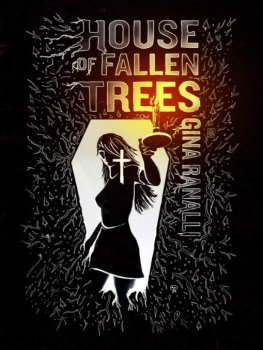
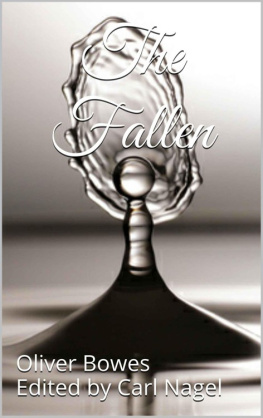
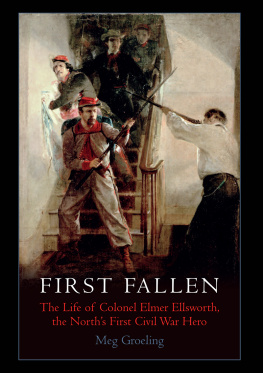
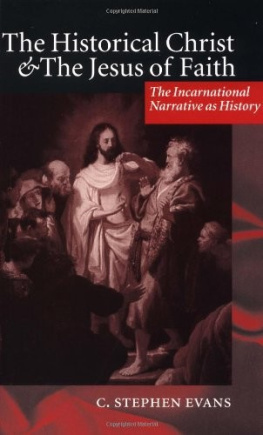
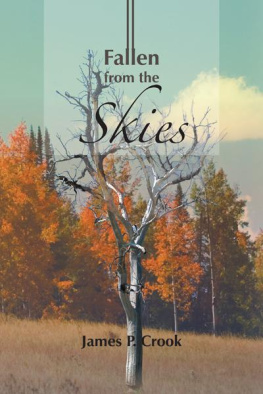
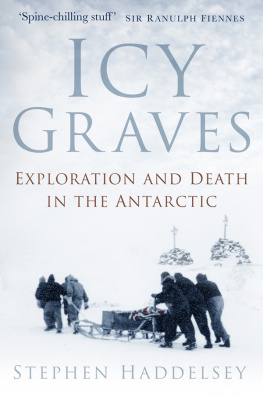
![Dubner Stephen J. - Super freakonomics : [global cooling, patriotic prostitutes and why suicide bombers should buy life insurance]](/uploads/posts/book/76604/thumbs/dubner-stephen-j-super-freakonomics-global.jpg)
